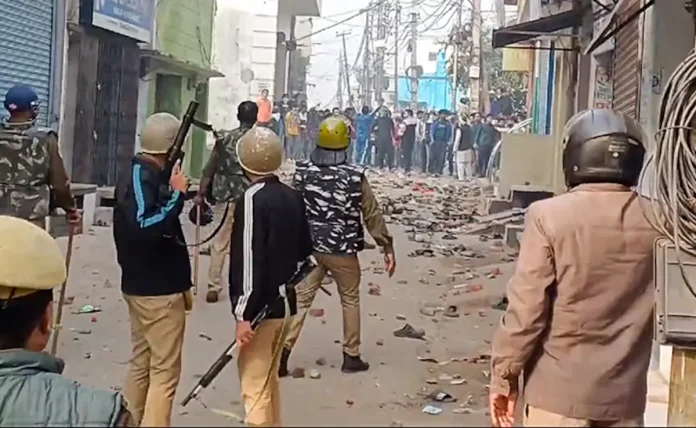December 8, 2024: Uttar Pradesh – A woman in Uttar Pradesh has filed a police complaint after her husband divorced her using the banned practice of triple talaq. The argument allegedly began when the woman praised police actions during the Sambhal violence, a tense period following a controversial survey of the Shahi Jama Masjid.
The woman, identified as Nida, said the argument started while she was watching a video about the protests in Sambhal. The unrest was sparked by claims that the centuries-old mosque had been built on a Hindu temple, leading to violence that killed four people and injured dozens, including 29 police officers.
Nida said her husband, Ejazul, objected to her watching the video and accused her of being “un-Islamic” for supporting the police. According to Nida, her husband then misbehaved with her and divorced her by uttering “talaq” three times, which is unconstitutional and illegal in India since the Supreme Court’s 2017 ruling and a subsequent 2019 law banning the practice.
“There was no reason at all. He divorced me without any cause,” Nida told reporters, adding that they had been married for three years. Dressed in a black burqa, she recounted, “He said, ‘You’re not a Muslim; you’re an infidel because you support the police. I will not keep you anymore,’ and then he pronounced triple talaq.”
Superintendent of City Police, Ranvijay Singh, confirmed that a case has been registered. “The woman reported that her husband objected to her watching a YouTube video about the Sambhal violence. When she disagreed, he ended the marriage by pronouncing triple talaq,” he said.
The incident highlights ongoing tensions in Sambhal, where violence broke out after a court-ordered survey of the Shahi Jama Masjid on November 19. The survey, prompted by a petition claiming the site was previously a Harihar temple, led to clashes between police and protesters on November 24.
The triple talaq practice, which allows Muslim men to divorce their wives instantly by repeating the word “talaq” three times, was outlawed as unconstitutional in 2017. In 2019, the Indian government passed legislation criminalizing the act, with penalties including imprisonment.
Nida’s case sheds light on the challenges faced by women even after the ban, as well as the communal tensions in parts of Uttar Pradesh amid ongoing disputes over historical and religious sites.
Suggested Tags:
#TripleTalaq #SambhalViolence #WomenRights #UPPolice #ReligiousTensions #Moradabad #ShahiJamaMasjid #CommunalClashes #UnconstitutionalPractice #LegalRights


